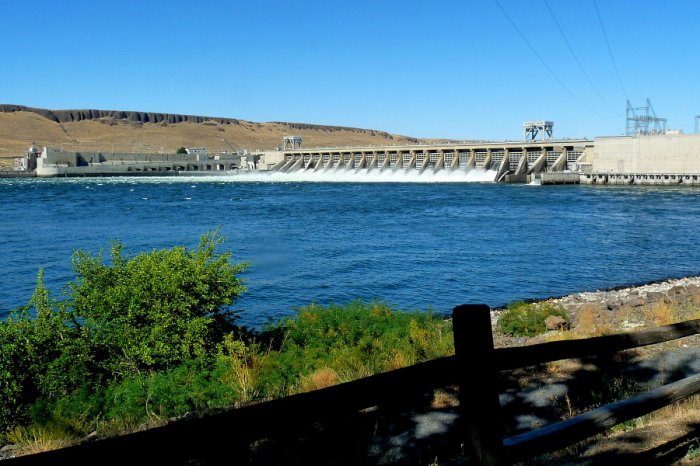After receiving the necessary documents (application form and project presentation), our team will try to review your request as soon as possible, and leading experts will offer the best options for project funding.
Design and engineering services are actively used by the aerospace industry, construction, energy, metallurgy, agriculture, the chemical industry, etc.
The purpose of engineering is to obtain optimal results from capital investments due to advanced technologies and scientific developments.
Using the services of a reputable engineering company, the investor can expect significant acceleration of the project, reducing costs, streamlining the production process and improving the overall business efficiency.
Recently, this market has been developing rapidly, but not all contractors satisfy the requirements of the business.
When choosing an international engineering company, several factors should be considered.
Global engineering services market
The term "engineering" means the use of scientific developments to solve practical economic and domestic problems of any kind.Modern engineering includes consulting services, design work, technical research, economic calculations (including the preparation of a feasibility study), as well as the organization and optimization of production processes.
Engineering services play an important role in the construction and operation of energy facilities, industrial enterprises and infrastructure. This covers a wide range of issues to improve reliability, safety, energy efficiency, quality and environmental performance.
Creative engineering and technical solutions in this area should be aimed at obtaining optimal results from investment, protecting the environment and ensuring the safety of human health.
The basis of modern engineering is a set of principles that ensure customer interest:
• A systematic approach to project planning.
• The presence of several technical and economic options with appropriate financial and marketing evaluations.
• Project development using the most advanced technologies, design solutions, materials and energy sources.
• Modern methods of organizing and managing projects at all stages.
Engineering is always based on the practical application of the latest scientific achievements, therefore leading engineering firms work closely with research centers and universities.
As part of this process, scientists generate original ideas and solutions, and engineers bring them to practice using their experience and creativity.
For this reason, the main exporters of engineering services in the modern world are developed Western countries, which have accumulated significant scientific knowledge in various fields, including computer science, physics, chemistry, etc.
Engineering as a sector of the economy arose in the 19th century in the UK, when professional engineers first began selling their services.
Subsequently, the first engineering firms were founded. They were in demand in the construction of roads, factories and mines, the modernization of existing plants and the introduction of innovations.
After the end of World War II, there was an urgent need for modernization and repair of numerous industrial, infrastructure and energy facilities. Later, the rapid industrialization of developing countries began, which required even more qualified engineers.
This contributed to the development of large engineering companies that are able to implement complex turnkey projects anywhere in the world. Typically, these services involved not only design and construction, but also optimization of operation and training of customer personnel.
As a result, engineering services have become more diverse. Due to significant technological differences between the countries of the post-war world, recognized leaders have emerged who export their services abroad.
Modern data show that the majority of engineering projects are implemented by companies from the European Union, Canada and the United States.
About 90% of the global engineering market falls on the USA, Canada, Great Britain, the Netherlands, Germany, Spain and other EU countries.
Although developing countries remain the main consumers of engineering services, in recent years there have grown many firms that are strengthening their own positions.
This is especially true for young companies from India, China and Brazil.

The reasons for the growth of international engineering are:
• Scientific and technological progress, which caused significant changes in the international economy and led to increased trade in technically sophisticated equipment.
• High demand for technological services from developing countries that did not have specialists for the design and construction of their own enterprises.
• The emergence of engineering companies with huge business opportunities, facilitated by international professional associations.
The development of international markets, along with the growth of business needs, have made engineering one of the most successful sectors of the economy. Since the 1950s, it has combined the consulting and civil engineering services necessary for the implementation of turnkey projects.
The global engineering services market is very dynamic as the demand for new technologies continues to grow. EU and North American engineering companies dominate this market, while developing countries remain predominantly consumers of engineering services.
International engineering companies activities
According to the American Society of Civil Engineers (ASCE), all the services of engineering companies fall into several broad categories:• Direct individual services, including consulting services, the development of individual technical solutions, representing the interests of the customer in court, and so on.
• Preliminary feasibility studies. These services play an important role before approving investment projects. They include a comparison of options for financial, environmental and other parameters.
• Site planning, including long-term regional development programs.
• Calculation of expenses: a detailed analysis of capital and operating expenses, the need to attract additional funds, and so on.
• Financial advice, including recommendations on the selection of project financing sources, loan terms and conditions.
• Direct construction management at different stages of the project.
• Testing equipment and building materials, site inspection and quality control.
• Operation of the facility after completion of construction.
In international practice, there are three main types of engineering:
• Consulting engineering: design, monitoring of construction and installation works. These services do not involve the supply of equipment, the direct implementation of construction work or the transfer of any technology.
• Process engineering: providing technical information necessary for the construction and operation of an object, including proprietary technologies.
• Construction engineering: designing the necessary equipment, installation and configuration.
According to the latest data, construction engineering makes up more than 70% of the engineering services market. It is followed by technological and consulting engineering.
All engineering services can also be divided into two broad groups.
The first group consists of services for the preparation of production processes (conducting a detailed feasibility study, design, construction, testing and commissioning):
• Pre-project services: market research, feasibility studies, topographic surveys of the terrain, soil surveys, development of a district development plan, development of an infrastructure development plan, counseling and supervision.
• Project services: preparation of a master plan for the construction of the facility, preparation of recommendations for the customer, assessment of the cost of the project, calculation of the costs of the construction and operation of the enterprise, development of the architectural design, consulting and supervision.
• Additional services: preparation of an EPC contract, organization and holding of tenders, construction management and supervision of construction work on the site, testing and commissioning, providing professional training for staff.
The second group consists of services related to the maintenance of the facility:
• Optimization of facility operation.
• Analysis of income and expenses to make recommendations to the customer.
• Company management, including marketing of its products.
• Organization of inspections and testing of equipment.
• Organization of procurement and supply of materials and equipment.
• Hiring and training specialists for the operation of the facility.
• Introduction of innovations, including information systems.
• Marketing research.
Engineering services are aimed at the optimal solution to a specific practical problem of the client, relying on the creative application of accumulated technologies, knowledge and experience.
This always involves an integrated, systems approach.
Professional design and engineering services provide:
• Improving investment efficiency.
• Significant reduction in project implementation time.
• Minimization of investment risks and other threats.
• Increasing the attractiveness of the project for potential investors.
• Integrated and effective enterprise management.
• Improving business competitiveness.

Benefits of EPC / EPCM Contracting
Engineering, procurement and construction (EPC) includes planning and control, procurement, construction and installation works.EPC contracting refers to a form of project management that is widely used in international construction.
The engineering company, which acts as an EPC contractor, provides all the necessary services, in particular design, procurement and manufacture of all materials and equipment, installation, testing and commissioning.
In this case, the EPC contractor transfers to the customer a fully finished object, usually at a fixed price.
The contract protects the interests of the customer, including through a system of fines for untimely fulfillment of obligations.
International contracts of this kind are often based on FIDIC requirements.
Engineering, Supply and Construction Management (EPCM) is an extended form of project management. An EPCM contractor manages design and construction, and oversees the work of subcontractors as directed by the customer.
Advantages of EPC / EPCM contracting:
• reduction of project implementation costs;
• professional control over all aspects of the project;
• the contractor is fully responsible for the project;
• high flexibility in financing.
EPCM is suitable for projects with a high degree of uncertainty when changes in costs are possible.
This is a great option for companies that are not ready to solve possible technical or legal problems on their own.
Choosing an engineering company: contractor assessment
Enhancing business competitiveness today is critical to industry and energy.Leading companies are constantly looking for ways to save resources and increase labor productivity, offering cheaper and better products to the competitive international market.
The organization of a new production process and the modernization of existing facilities requires professional design work and a feasibility study. The right choice of engineering firm is crucial.
Successful implementation of an engineering project requires:
• Methodological support.
• Information support: collection and systematization of relevant data.
• Technical support: availability of equipment, technologies, materials and other resources to fulfill obligations.
• Financial support: the possibility of implementing an engineering project using own funds or other reliable sources.
• Human resources: the availability of a sufficient number of qualified specialists.
• Experience: implementation of similar projects and positive feedback from customers.
• Insurance: any contractor must be insured against error.
Most engineering services require extensive professional knowledge, a systems approach and the availability of significant resources. If the engineering company does not meet the requirements of your business, this creates certain risks for the project.
Improper fulfillment of obligations can lead to significant financial and reputational losses.
A lot of cases are known when the unsuccessful choice of contractors actually stopped the construction of multi-million dollar facilities.
Before concluding a contract for the provision of engineering services, the customer should carefully examine the capabilities of the contractor and evaluate its reliability. In this case, it is advisable to analyze and compare several companies that specialize in performing a certain type of work.
When performing a contractor assessment, the following should be considered:
• Availability of resources sufficient for the implementation of the project: the number of employees, the value of the company's assets and other key indicators. This indicates the possibility of fulfilling obligations under the EPC contract.
• Knowledge, equipment and technologies: percentage of experienced engineers and other specialists, share of modern equipment, availability of innovative developments and scientific activity of the company.
• Management system: the number of managers, the organizational structure of the company, the presence of an effective system of employee motivation, etc.

The choice of an engineering company is based on a combination of parameters that determine its ability to provide appropriate services in a timely and high-quality manner.
ESFC financial and engineering services: European quality
The Spanish international company ESFC offers a full range of investment consulting and financing services anywhere in the world.Our partners implement investment projects in Europe, Asia and South America.
Practical use of the latest engineering achievements provides cost savings, contributes to the development of business and local communities, making people's lives better.
Our rich experience and systematic approach allows customers to significantly increase business profitability, improve environmental performance and achieve high quality indicators.
ESFC with its partners is ready to offer the latest financial, scientific, technical and economic solutions for your business.




























